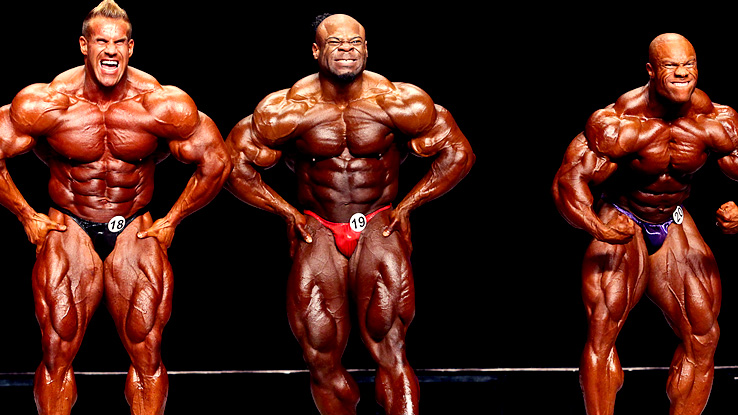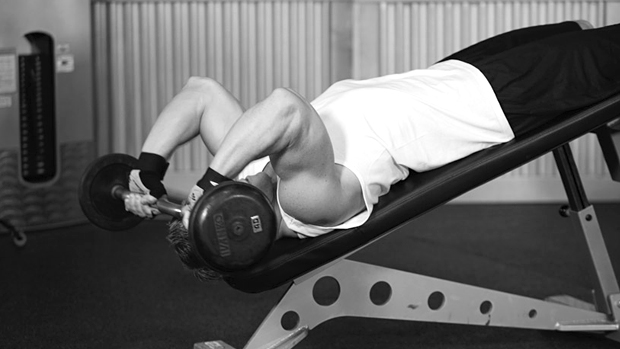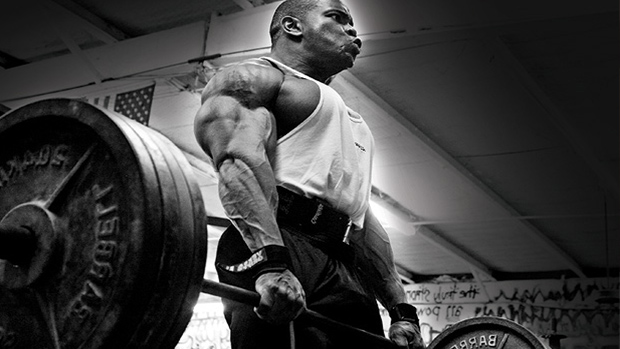Here's what you need to know...
- "Shadow Pro" is a real pro bodybuilder who has competed recently in the Olympia. He's writing here anonymously because he wants to get a few things off his chest without risking his career.
- The politics in bodybuilding is worse than you can imagine. Vague judging criteria allow room for corruption.
- Judging is ambiguous. What's needed is a standardized scoring system. Not only will this clean up the sometimes questionable judging, it'll help bodybuilders and other physique competitors know where they need to improve.
Editor's Note: T Nation was approached recently by an IFBB pro bodybuilder who said he had a few things to get off his chest. He wanted to write anonymous articles for us as well as answer questions honestly in our pharma forum. We were reluctant at first, but after speaking with him and verifying his identity we decided to see what he had to say. It was pretty intriguing stuff. Thus "Shadow Pro" was born.
Bodybuilding Insider
I've decided to tell you the truth about bodybuilding. I've been on the inside of professional bodybuilding for many years. I've basked in the glory of winning first and I've come in dead last. I've stood on the Olympia stage and I've stood off to the side in the shadows. I've done it all and I've seen it all, and it's time for me to share my experiences and opinions on the matter.

It's Not a Beauty Pageant
For the sake of up and coming bodybuilders, I wish competitive bodybuilding could be different. I wish it were more of a sport. Sadly, it's become more of a beauty pageant.
The IFBB rulebook, section 28.2, states that competitors with a "harmonious" physique should be favored: "The judge should favor competitors with a harmonious, classical physique. The judge should look for good posture and athletic bearing, correct anatomical structure..." But what exactly does harmonious mean? What does classical mean? There are no clear guidelines, not like there are in other subjective sports. This makes the rules for the sport confusing for everybody, including the judges.
When you think of Jay Cutler, Ronnie Coleman or Dorian Yates, does the word "harmonious" come to mind? Probably not. But if you think about Dexter Jackson, Phil Heath, or Arnold Schwarzenegger, this description is much more probable. These guys are all champions, legends even. So what does this rule mean? Is Ronnie Coleman the perfect physique or is Dexter Jackson? There's no clear cut criteria. Even with set guidelines in judging, it will always be a subjective sport, but if the participants had an idea of what the judges were looking for then they'd be better able to prepare accordingly. Personally, I've asked for feedback from six different judges at the same show and received different answers from each and every one of them.
When a bodybuilder comes to me and asks what his weakness is, I always break it down into categories so he can get a better understanding of where he needs to improve. I believe these same categories should be incorporated into the official rulebook. Rather than using vague terms like "harmonious" the scoring breakdown for judging should look like this:
Muscle Mass (25%)
This is why we're here. To build muscle... and a lot of it! In an era filled with men's physique (the "board shorts" or "fitness model" category) and bikini (think figure with a little less muscle and a lot more sticking your ass in the head judge's face), let the freaks be freaks! It's a muscle competition, not a Victoria's Secret runway. This is the hardest part of bodybuilding and the reason why the sport exists, so let's give muscle mass the respect it deserves.
Condition (25%)
Conditioning is what separates the men from the boys. How much suffering can you bear? If you show up on stage and blow everybody away with your conditioning, you should be rewarded for it! Hard, grainy, shredded, ripped: this is part of modern bodybuilding and it should be rewarded.
Symmetry and Proportion (25%)
I hope you haven't been neglecting legs! It's appealing to see equal development amongst body parts and symmetry between both sides of the body.
Structure (12.5%)
God didn't bless us all with tiny waists and wide shoulders, so I believe this should count for a lower percentage, but still be relevant.
Presentation (12.5%)
It's not a dancing competition! It's a muscle competition. It's important to present yourself in a respectable and distinguished way, be able to hit the mandatory poses, hold them, and transition fluidly. If I wanted to see dancers I'd go to the ballet.
The idea behind this structure is to create a clear breakdown so bodybuilders can understand what their strengths and weaknesses are and understand why they placed the way they did. It sounds simple, and it should be simple. The bodybuilder would get points for each criterion on a scale of 1-10 for muscle mass, condition, and symmetry. For structure and presentation, 1 to 5 points. The bodybuilder with the highest overall score would be the winner. Here's an example:
| Bodybuilder | Mass (10) |
Condition (10) |
Symmetry (10) |
Structure (5) |
Presentation (5) |
Total (40) |
|---|---|---|---|---|---|---|
| Dexter | 6 | 9 | 10 | 5 | 4 | 34 |
| Branch | 10 | 8 | 6 | 2.5 | 3 | 29.5 |
A system like this would take out most of the guesswork. A competitor will finish the show knowing exactly what the judges want him to improve. It will also help hold the judges accountable for their decision and provide a clear answer as to why they placed where they did. (This basic structure can also be used for other categories like bikini, physique, and figure, but with different criteria.)
I've seen way too many bodybuilders (including myself) leaving shows and scratching their heads wondering what they did wrong, and no one can give them a reasonable explanation. It'll also help reduce politics tremendously and take the "dark side" out of bodybuilding judging. No longer will people be able to pay off, sleep with, or be coached by judges to make their way to the top. If we ever want to participate in a "clean" sport, we need to start somewhere. If you love competitive bodybuilding, spread the word and let people know that it can be done fairly.




